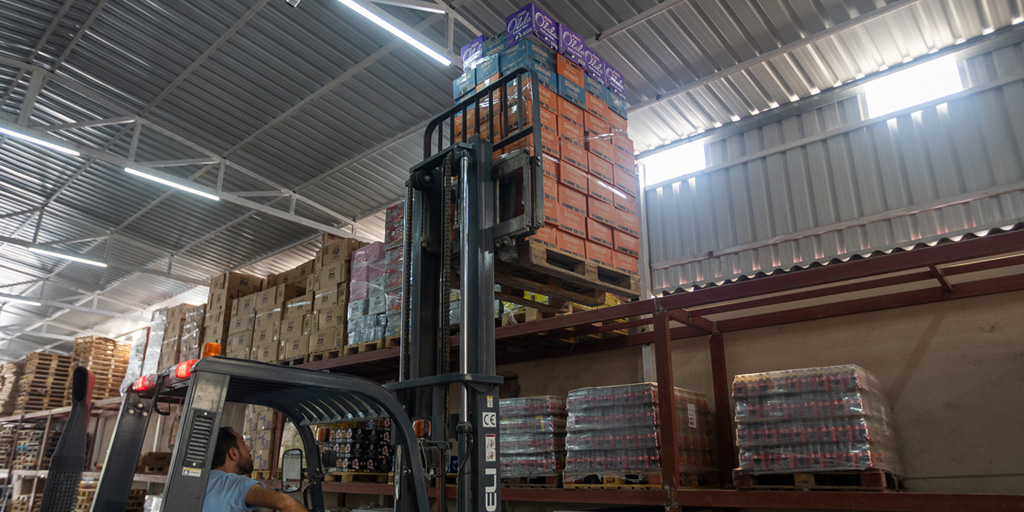The impact of the Ebola epidemic to Liberia’s economy could be devastating. The Government of Liberia’s state of emergency (declared on August 6) is paralyzing the nation’s economy by closing borders, shutting schools and markets, restricting the movement of people and quarantining affected areas. Food prices are soaring, exchange rates are worsening and projects are closing down. Moreover, concession activities, which are the largest driver of GDP for the country, are stalled. The World Bank estimates that the country could see an 11.7% reduction to GDP due to the outbreak.
While mining and oil and gas companies can’t do much to halt the spread of the virus, extractive companies must play a role in kick-starting the economy once the virus is contained. They can do this by quickly picking up where they left off and working to ensure their projects are creating inclusive economic growth by integrating local businesses into their supply chains. By doing so, local businesses will create jobs, reinvest their profits and ensure FDI flows into the local economy.
 A new report by Building Markets, called “Leaving a Trace: The Potential Economic Impacts of Mining in Liberia,” is the nation’s first in-depth mining sector overview report. The report looks at the current and future sourcing and hiring needs of mining companies and how local businesses and citizens can fulfill those needs. This report analyzes gaps between demand and supply, identifies barriers to local procurement and hiring and provides local suppliers, international mining firms and government agencies with the knowledge to unlock the sector’s long-term socio-economic potential.
A new report by Building Markets, called “Leaving a Trace: The Potential Economic Impacts of Mining in Liberia,” is the nation’s first in-depth mining sector overview report. The report looks at the current and future sourcing and hiring needs of mining companies and how local businesses and citizens can fulfill those needs. This report analyzes gaps between demand and supply, identifies barriers to local procurement and hiring and provides local suppliers, international mining firms and government agencies with the knowledge to unlock the sector’s long-term socio-economic potential.
Some of the report’s key findings include:
- Annual expenditure by mining companies is set to exceed US $2 billion by 2016. This demand will be driven by major mining construction projects, which include investments in support infrastructure such as railways and roads.
- Local suppliers are not adequately prepared to tap into opportunities for supplying goods and services to the mining sector. Currently, firms with either more than 50% Liberian ownership or that undertake significant value addition in Liberia account for just 12% of current mining procurement expenditure. Local businesses face significant financial and technical constraints to meet the level of quality, price competitiveness and scale the mining sector demands
- The greatest near-term potential for local supplier participation is in the supply of non-essential goods and support services.
- The Government of Liberia (GOL) estimates the mineral development agreements (MDAs) signed to date will create between 13,000 and 14,000 direct jobs over the next 50 to 80 years. However, the Liberian labor force currently lacks the experience and skills to meet the bulk of the immediate hiring needs of mining companies. School attendance remains low and 56% of adults have never attended or completed primary school.
- A concerted mining skills development program involving government, industry and civil society is necessary to develop a workforce that matches the needs of the mining sector.
- Counter to expectations, direct mining jobs will constitute only a small proportion of the overall jobs created. Indirect jobs within the supply chains of mining firms could create three times the number of direct jobs. In 2017 alone, aggregate spending suggests mines will support 12,552 jobs indirectly through supply chain linkages and induced through employee income spending – compared to up to 14,000 jobs created directly by mining companies between 50 and 80 years. Therefore, the extent to which the mining sector is able to generate local employment is heavily dependent on the depth of supply linkages with local businesses.
- The lack of a comprehensive local content law and framework limits the local impact of mining.
Based on the above findings, Building Markets recommends the following:
- Targeted local supplier development is necessary to upgrade the capacity of local businesses to meet the procurement needs of the mining sector. To address the constraints faced by local businesses, a mix of interventions is required to develop the technical, organizational and financial capacity of local suppliers.
- A mining sector training and qualifications authority should be created to manage the development of relevant curricula and coordinate training activities. This body will ensure the training system is responsive and informed by the needs of the mining sector, resulting in increased local graduates and a boost to local employment.
- It is imperative for Liberia to create a policy that clearly articulates a framework for incorporating local content into the mining sector. The policy framework should strive for a balance between promoting economic participation of citizens and encouraging local value addition.
- Laws and regulations regarding local content need to be aligned so that the objectives of investment attraction and local economic participation do not run at odds. Currently, import tax exemptions create a competitive disadvantage for local suppliers. Creating incentives for corporates to buy through local vendors could mitigate this disadvantage.
- Mining sector monitoring must be streamlined to increase accountability and transparency. Current overlap of monitoring roles and responsibilities are cumbersome for business and lack transparency.
In sum, the mining sector presents enormous opportunities for job creation and supply chain linkages but absorptive capacity is weak for both labor and local business. Coordinated workforce and local supplier development is imperative to optimize employment and supply linkage benefits.
Tags : buy local concessions Leaving a Trace Liberia Market Research mining
More from this author -
Latest News -

PDT – First Annual Plan of Action
Uncategorized

New assistance for local businesses available from Peace Dividend Trust
Uncategorized



